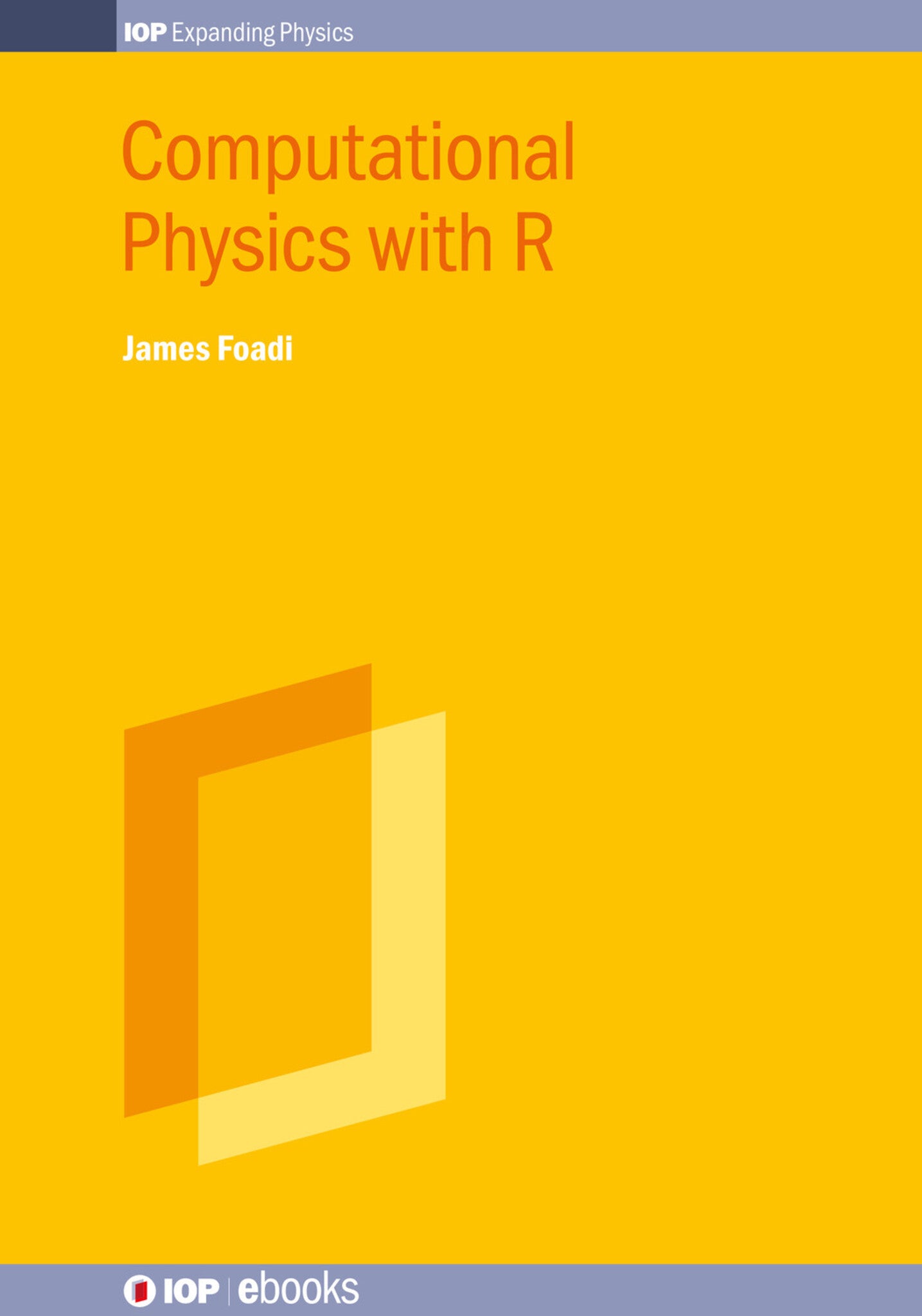We're sorry. An error has occurred
Please cancel or retry.
Computational Physics with R

Some error occured while loading the Quick View. Please close the Quick View and try reloading the page.
- Format:
-
31 December 2025

This book has two primary goals: To introduce the R language to the physics community and to demonstrate its advantages as a simulations’ tool; and to make physics simulations accessible to a wider audience of scientists via the use of the many powerful and ready-to-use R packages and R functions. It covers traditional topics in classical and quantum computational physics, but its emphasis is in the adoption of the many features, routines and modules of the R platform to save coding time and to exploit the enormous potential and efficiency of R functions for the generation and analysis of data. With the exclusion of the introductory chapters, each chapter includes sections presenting: a) a theoretical introduction to specific computational techniques, b) their application to well-defined physics examples, c) the R approach to the coding required and d) ready-to-use packages and functions in R to carry out the tasks included in the physics examples, e) suggested projects with guided solutions. Readers of the book will learn R within familiar applications in physics and will inevitably acquire the statistical set of mind infused by the continued use of this programming language.

SCIENCE / Physics / Mathematical & Computational, Mathematical physics, COMPUTERS / Mathematical & Statistical Software, MATHEMATICS / Probability & Statistics / General, Probability and statistics, Mathematical and statistical software

Preface
Contents
PART I - Introduction to Computational Physics and to the R programming language
1 Introduction to Computational Physics
2 Introduction to the R programming language
PART II – Essential numerical methods and algorithms in Computational Physics
3 Basic numerical methods
4 Numerical methods for matrices
5 Decomposition methods
PART III – Advanced numerical methods and algorithms in Computational Physics
6 Introduction to the Monte Carlo method
7 The finite-element method
8 Computational fluid dynamics
9 High Performance Computing
10 GPU computing
Appendix



